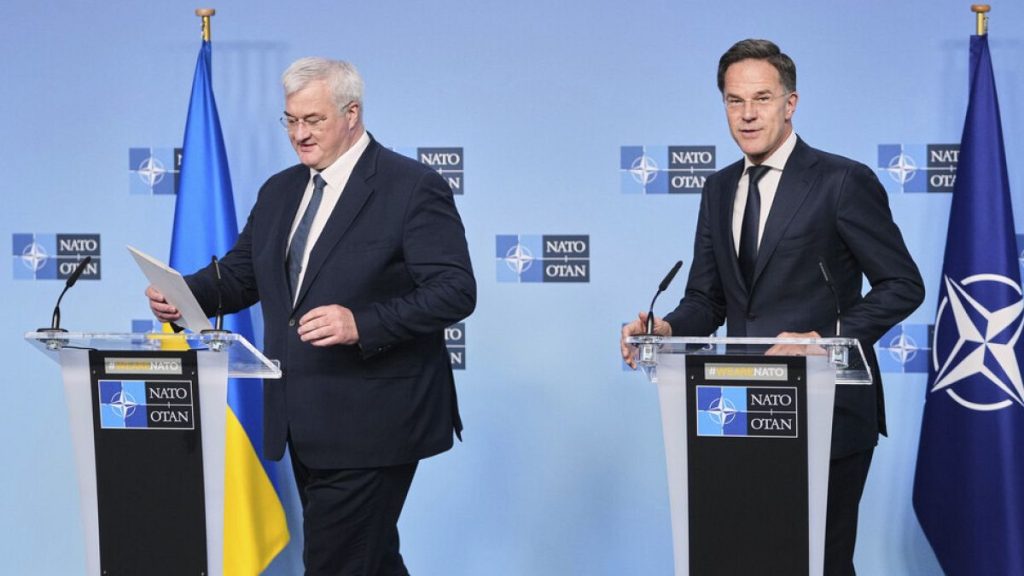On Thursday, NATO Secretary General Mark Rutte emphasized the necessity for any ceasefire or peace agreement in the ongoing Ukraine conflict to be sustainable and long-lasting. In his remarks, Rutte acknowledged American efforts to mediate the situation, underscoring the geopolitical significance of this war to global peace and security. He further stated that the outcomes will influence the strategic calculations of world leaders, particularly regarding alliances and regional stability.
The Russian conflict is not just a bilateral issue but involves broader international implications, necessitating a united diplomatic front. As the situation develops in Ukraine, officials have called upon all global powers to exert increased pressure on Russia to engage sincerely in peace negotiations. The urgency for a comprehensive and lasting resolution is echoed by both NATO leadership and Ukrainian officials during a pivotal meeting in Brussels attended by foreign ministers from member states.
| Article Subheadings |
|---|
| 1) NATO’s Position on Ceasefire and Peace |
| 2) The Global Implications of the Ukraine Conflict |
| 3) Ukrainian Foreign Minister’s Call for Action |
| 4) The Role of NATO Ministers in Ongoing Discussions |
| 5) The Path Forward: Diplomacy and Pressure |
NATO’s Position on Ceasefire and Peace
During a recent address, NATO Secretary General Mark Rutte articulated the alliance’s stance on establishing a ceasefire in Ukraine. He underscored that any agreement between the conflicting parties must not only bring a temporary halt to hostilities but must be constructed on enduring principles that foster long-term peace. Rutte praised American mediation efforts and recognized their importance in breaking the deadlock. As NATO stands firmly behind Ukraine, the organization is paving the way for an outcome that can be accepted by both sides, ensuring it meets the needs for stable security in Europe.
The Global Implications of the Ukraine Conflict
Rutte emphasized that the implications of the Ukraine war extend beyond the immediate region and have significant repercussions for global security. He described the conflict not merely as a dispute between neighbors but highlighted it as a “global conflict,” noting Russia’s alliances with nations such as China, North Korea, and Iran. As these nations align against Western interests, Rutte expressed concerns about the geopolitical power struggles that could ensue. The outcome of this war could shift the balance of power in multiple regions, including the Indo-Pacific, which is seen as a pivotal arena for international relations.
Ukrainian Foreign Minister’s Call for Action
In response to the ongoing conflict, Ukrainian Foreign Minister Andrii Sybiha stressed the importance of a comprehensive and lasting peace agreement. Sybiha pointed out that Ukraine had welcomed a proposal for a temporary ceasefire but criticized Russian President Vladimir Putin for not taking this offer seriously. “Russia must get serious about peace,” he asserted, calling on the international community to put more pressure on Moscow. He urged that the time for diplomacy lies alongside the necessity for pressure to deter further aggression. This call to action from Ukrainian leaders highlights the urgency felt within the nation’s government amid the prolonged turmoil.
The Role of NATO Ministers in Ongoing Discussions
The comments by both Rutte and Sybiha coincided with a meeting of NATO foreign ministers, which included influential figures such as U.S. Secretary of State Marco Rubio. These discussions in Brussels were intended to evaluate the situation in Ukraine and consider collective actions going forward. The meetings serve as a crucial platform for dialogue among member states, allowing for coordinated responses and unified strategies to address the ongoing conflict, as well as its effects on regional stability.
The Path Forward: Diplomacy and Pressure
As the rhetoric around the conflict continues to elevate, NATO officials maintain that a two-pronged approach—diplomacy combined with pressure—is vital to resolve the situation. Sybiha emphasized that, while diplomatic channels remain open, there is an undeniable necessity for stronger deterrence against further Russian aggression. “While the media attention is on global trade wars, we must not forget that there is a real full-scale war going on in Europe,” he cautioned. The proposal for a ceasefire highlights an opportunity for genuine negotiations, but the framework for a lasting agreement will require adherence from all parties involved, especially Russia.
| No. | Key Points |
|---|---|
| 1 | NATO emphasizes the need for a lasting peace agreement regarding the Ukraine conflict. |
| 2 | Rutte highlights the global implications of the war, including impacts on key geopolitical regions. |
| 3 | Ukrainian officials call for increased international pressure on Russia to engage in peace talks. |
| 4 | NATO foreign ministers are discussing collective responses to the situation in Ukraine. |
| 5 | Diplomacy and a deterrent approach are essential for achieving peace in the region. |
Summary
The ongoing conflict in Ukraine has implications that stretch far beyond its borders, affecting global alliances and regional stability. NATO’s call for a lasting ceasefire reflects a concerted effort to seek a resolution that is comprehensive and enduring. As both Ukrainian officials and NATO leadership stress the urgency of diplomatic engagements alongside necessary pressure on Russia, the world watches closely as outcomes in Ukraine will likely influence broader geopolitical dynamics.
Frequently Asked Questions
Question: What is NATO’s role in the Ukraine conflict?
NATO plays a supportive role by providing diplomatic backing to Ukraine and discussing collective strategies among member states aimed at addressing the conflict.
Question: Why is a lasting peace agreement important according to NATO officials?
NATO officials believe that a lasting agreement will not only resolve the immediate conflict but will also contribute to long-term stability in Europe and beyond.
Question: What actions does Ukraine’s foreign minister suggest should be taken against Russia?
Ukrainian Foreign Minister Andrii Sybiha calls for increased international pressure and deterrence measures on Russia to prompt a serious engagement in peace negotiations.


